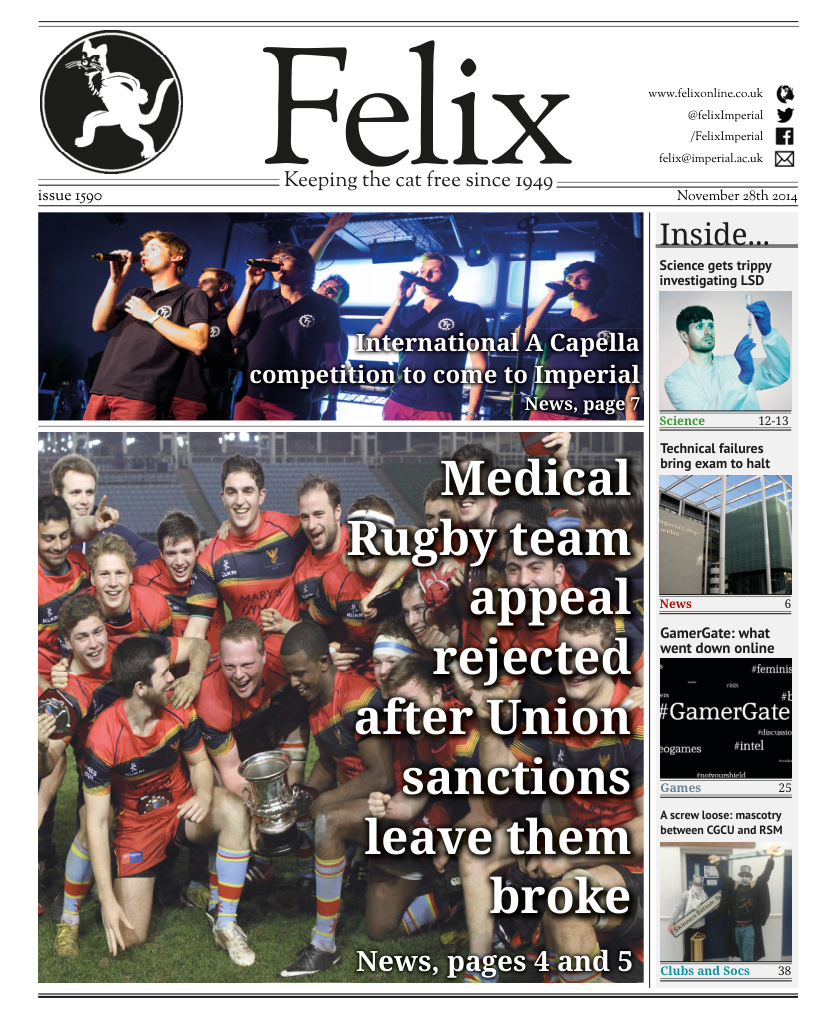Attending University can be a risky business
George Butcher discusses how to determine the value of education
I was sat in a job interview, nervously trying to justify my existence to a stranger and I was asked “Why did you chose to study at Imperial?”. I think I managed to persuade him it wasn’t because Cambridge had rejected me and that it was in fact, “Imperial’s academic rigour and forward thinking ethos”. If I’m honest I applied because it was top of the league tables and I came because I managed to get the grades.
But how do aspiring students choose universities? This is the question a recent report by _Which? _tried to answer. It’s important because with fees at £9000 per annum, sixth form students are expected to make rational consumer decisions and commit to spending around £45,000 on a degree. All this before you’re legally allowed to take out a normal loan.
I’m fortunate. I’m very confident that my £3,450 per year fees are a worthy investment. Simply comparing the mean Imperial graduate salary with the median UK salary is enough to show that. But that isn’t always the case. The Which? survey (which didn’t mention Imperial specifically) found 3 in 10 undergraduates thought their experience was poor value and that 35% said they are “unlikely to have attended university faced with higher fees”.
The risk that a course is a waste of time and money is not just borne by the student. It’s a loan you’ll only pay back if you earn enough money, so the risk is also with tax payers, who are the very people we tried to reduce the burden on by introducing fees in the first place.
In fact, the government now loses 45p of every £1 it lends to students. Last year the student loans company paid out £12.5 billion in loans to students and that’s set to rise. The higher education sector is haemorrhaging money.
If you arrive at a university and find that your lectures aren’t quite worth the £50 each you’re paying, you’re stuck. There’s no chance to transfer to another university – you just have to start again and pay another set of fees. If you drop out completely you have to pay back the fees, but you’re not even a graduate. In most industries the consumer is protected by a regulator. If you buy a broken car, you get it replaced or refunded. But if you get a useless course, you’re stuck with it; no refunds apart from extreme situations. The universities bear a very small amount of risk in the game, it’s the students and the government who take the risk. The exact opposite of normal business where the shareholders risk their investment if the customers leave.
If students are to be consumers, then we need the protection and rights that come with that. This should be one of the benefits of the tuition fee system but it has yet to happen. Why? Because if a course can’t keep its students happy, and they all leave with refunds, that course won’t be open for long. The good departments will flourish but the poor departments will close. It’s creative destruction capitalism – students got their brunt of the deal when the fees trebled. Now universities have to face the reality of the economic market too, and something tells me they won’t like it either.
The transition of the tuition fee model won’t be complete till departments who don’t pay for themselves have to close.










